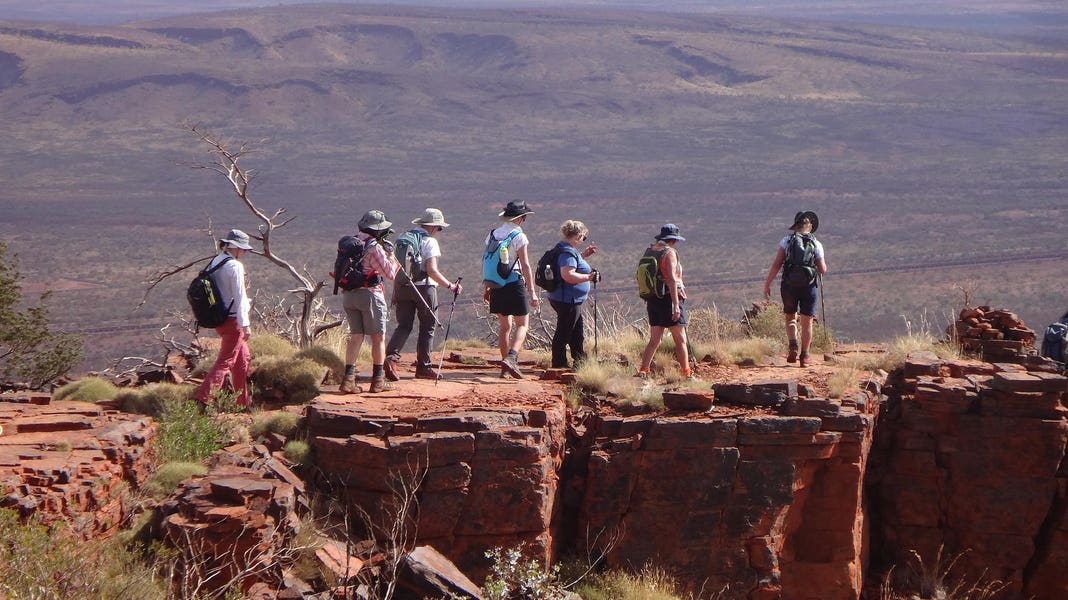In this compilation of articles, I engage in discussions with a range of vacation specialists, authorities, and high-end labels to delve into the travel industry’s outlook for the upcoming year and beyond. Here, I explore two emerging trends: the craving for authentic experiences and the role of technology in enhancing travel.
TREND 1: THE SIGNIFICANCE OF AUTHENTIC EXPERIENCES
For travelers, the essence of connecting with local communities, immersing oneself in regional cultures, and embracing authentic experiences is paramount.
The notion of authentic travel taking precedence over conventional tourism is underscored in Intrepid Travel’s recent “A Green Future for Travel” Report, developed in collaboration with The Future Laboratory. The report envisions a shift towards culturally immersive travel experiences, emphasizing human-centric interactions while considering the environmental and social impacts. By focusing on community-driven travel experiences, Intrepid is not only fostering stronger human connections but also addressing environmental and social concerns. Noteworthy initiatives by Intrepid include doubling the representation of female guides and introducing 100 new Indigenous-focused tours in destinations like Morocco and India. These strategic investments aim to mitigate “tourism leakage” by directing economic benefits back to local communities.
The ethos of Intrepid Travel revolves around fostering connections with local communities.
Darrell Wade, the co-founder and CEO of Intrepid Travel, highlights the unsustainable nature of current hospitality practices, stating, “The current model of hospitality is exploitative and unsustainable.”
The evolving preferences of modern travelers are encapsulated in Hilton’s 2024 Trends Report, which identifies a growing inclination towards experiential travel. This trend emphasizes experiences (85%), exploration of uncharted territories (81%), sampling local cuisines (64%), and immersing in regional customs and traditions (48%) while on vacation. A significant portion (52%) of individuals are reallocating their budgets to prioritize travel experiences, with over 56% of Britons planning to increase their travel expenditure in 2024 compared to the previous year. Furthermore, an increasing number of travelers are seeking authentic culinary experiences, with 25% actively seeking locally sourced food options.
Cartology Travel, a bespoke luxury travel company, specializes in curating unique travel experiences worldwide by collaborating with local partners to ensure exceptional stays. The company acknowledges the growing demand for authentic travel experiences in recent years. Co-founder Justin Huxter notes that clients are increasingly interested in engaging with local communities and immersing themselves in novel experiences, whether it involves attending a cooking school in Sri Lanka, participating in conservation efforts in South Africa, or learning traditional recipes from indigenous hosts passed down through generations.
Audley Travel observes a rising demand for “bespoke” travel experiences among customers. The custom travel expert notes that North America specialists are responding to this trend by offering tailored activities such as guided kayaking excursions, wilderness camping trips to observe wildlife like whales and wolves, and exploring off-the-beaten-path destinations like Saskatchewan and the Yukon. Audley’s local partners are also adapting to this trend by customizing experiences to cater to specific client preferences.
Another emerging trend catering to travelers seeking in-depth immersion in local cultures is highlighted by Original Travel. The company has developed 10 new itineraries to cater to the burgeoning segment of “waterculturalists” – enthusiasts eager to explore the seas, lifestyles, and cultures they encounter. These travelers seek to deepen their understanding of marine ecosystems, engage in conservation efforts, and contribute to the preservation of waterways and associated cultures. From planting marine life in the Philippines to swimming with Bajau fishermen in Indonesia, these initiatives offer travelers unique opportunities to engage with local customs and environments.
AI AND TRAVEL IN TREND 2
The integration of technological advancements, particularly artificial intelligence (AI), is seen as a pivotal factor in enhancing guest experiences and promoting sustainability within the hospitality industry.
Timbers Resorts, a boutique hospitality developer and operator, emphasizes the indispensable role of AI in delivering personalized services to guests. While acknowledging the irreplaceable value of human touch in creating memorable guest experiences, Chief Marketing Officer Heidi Nowak highlights the benefits of AI in streamlining operational tasks that do not necessitate human intervention, such as fulfilling requests for amenities or managing housekeeping services efficiently.
Nowak further elaborates on the practical applications of AI, noting that guests can communicate their needs via text messages throughout their stay, enabling them to request services like fresh linens or towels while engaging in activities like golfing or skiing, with the assurance of prompt fulfillment. While AI enhances operational efficiency, it is underscored that the personalized connections forged between guests and staff remain integral to delivering exceptional guest experiences.
The aforementioned “A Green Future for Travel” Report by Intrepid Travel also delves into the role of artificial intelligence in the travel industry. The report underscores the growing emphasis on sustainability and accountability within the travel sector, with a particular focus on leveraging technology to drive positive environmental outcomes. The emergence of a new cohort of travelers dubbed “Travel Transformers” signals a shift towards eco-conscious travel practices, with travelers increasingly holding themselves and the industry accountable for reducing carbon footprints and promoting sustainability.
The report envisions a future where real-time tracking of travel metrics enables travelers to monitor and improve their environmental impact, fostering a culture of responsible travel practices. The global travel technology market is projected to reach £11.2 billion by 2028, reflecting a growing investment in technologies that empower travelers to track and mitigate their carbon emissions. Noteworthy tools such as Ariel, Klima, Earth Hero, and Joro offer users the ability to monitor their carbon footprints and progress towards decarbonization goals, aligning with industry-wide efforts to achieve net-zero carbon emissions by mid-century.
In conclusion, the convergence of AI and sustainable travel practices holds promise for revolutionizing the hospitality industry, offering guests personalized experiences while advancing environmental stewardship goals.






